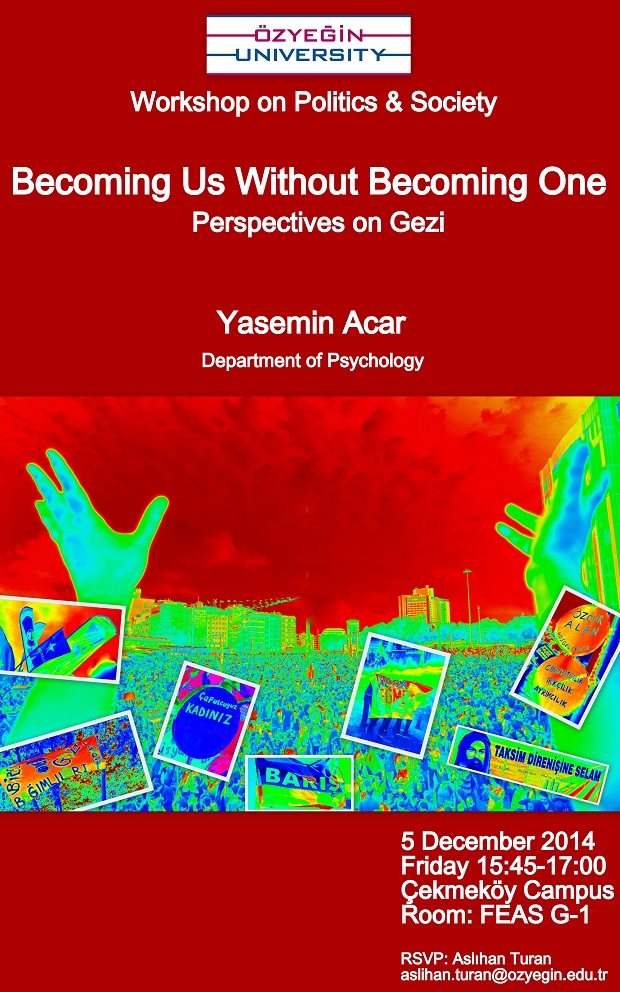Özyeğin University, Çekmeköy Campus Nişantepe District, Orman Street, 34794 Çekmeköy - İSTANBUL
Phone : +90 (216) 564 90 00
Fax : +90 (216) 564 99 99
E-mail: info@ozyegin.edu.tr

Workshop on Politics & Society - III
You are cordially invited to International Relations Department's third Workshop on Politics and Society entitled "Becoming Us Without Becoming One: Perspectives on Gezi" by Yasemin Acar.
The event is scheduled to take place on December 5th, 2014, Friday from15:45 to17:00 in room FEAS G1. You can find the abstarct of the workshop below.
For further information about the event, please contact Ms. Aslihan Turan from aslihan.turan@ozyegin.edu.tr.
Becoming Us Without Becoming One: Perspectives on Gezi
The Gezi Resistance is a unique phenomenon in the history of Turkey. The protests, which started in Istanbul and spread across 79 of Turkey’s 81 provinces and brought together activists from a variety of backgrounds, parties and organizations. Because of the protests, individuals with very different perspectives, such as feminists, members of the Kurdish movement, the Youth Union of Turkey (TGB), ülkücüler, and a variety of other groups were able to come together against a common out-group. Within the field of social psychology, social identity theory (Tajfel & Turner, 1979), describes the ways different groups can interact based on in-group, out-group, and superordinate category classifications. Collective action literature from a social psychology perspective also describes the relevance of perceived injustice, efficacy, and in-group identification as important factors for engaging in collective action (van Zomeren, Postmes & Spears, 2008). A number of activists were interviewed within a framework based on these two related perspectives. In order to learn about perceptions of injustice pre-Gezi park, as well as experiences during the Gezi Resistance, Alevi activists, Anticapitalist and Revolutionary Muslims, Çarşı, women’s rights activists, Kemalists (e.g., TGB, ADD), Kurdish rights activists, LGBTI activists, members of unions (e.g., TMMOB), members of socialist parties (e.g., TKP, ESP), and ülkücüler were interviewed. In order to capture the full scope of events, thematic analysis was applied to the interviews to identify, analyze, and report themes within the data. Thus, thematic similarities and differences across groups, relationships between groups, and relation to the out-groups (i.e., police, government) will be identified within the context of identity borders. The results and their potential impacts on questions of identity, intergroup relations, and collective action within these dimensions of identity will be discussed.
